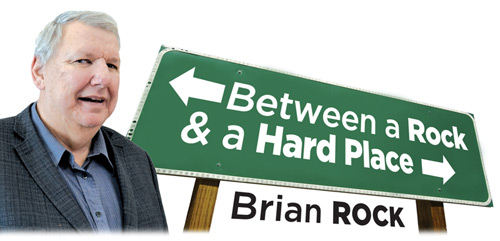What is all this fuss about the curriculum of the history of Québec and Canada... and does it really affect you anyways?

Mr Sébastien Proulx, the Minister of Education, Recreation and Sports and the Minister of Families, has inherited a hot potato from the desk of Marie Malavoy, responsible for Education in the Parti Québécois Cabinet of Premier Pauline Marois from 2012 until 2014. Circumstances have meant that Mr Proulx is the fifth Education Minister in less than three years following in the footsteps of Yves Bolduc (2014-2015), François Blais (2015-2016), and Pierre Moreau (2016) - the last four Liberals.
As a bebite of history and a former teacher of the History of Québec and Canada course to Grade 10 students in the 1980s and 1990s, I have followed this hot dossier with more than just a passing interest. I have become involved!
Mr Philippe Couillard’s recent statements about being a citizen of Québec and his definition of the basic exigencies have been courageous in many people’s eyes, considering how some members of the opposition political parties in the National Assembly of Québec feel, especially when the microphones are turned off. Mr Couillard, of course, is not only the Premier of Québec, but also Minister responsible for Youth Issues, one of which, in my view, is the quality of history taught to fourteen, fifteen, and sixteen year olds in this province.
It has been reported that a confidentiality agreement was signed with the history consultants of the English school boards, who have been part of the working group toiling on the new history curriculum for Secondary III and IV. This agreement has muddied the level of information available to the individuals and organizations with an interest in the issue of history curriculum.
The constitutional rights of management and control of educational institutions cover curriculum taught to the children of section 23 rights holders under the Canadian Charter of Rights and Freedoms. Mr Graham Fraser, the sixth Commissioner of Official Languages of Canada, retired after more than a decade serving Canadians so well as the longest serving Commissioner. Mr Fraser retired in December of 2016, and Ms Ghislaine Saikaley has been appointed as Commissioner in an interim capacity.
The curriculum for the History of Québec and Canada course cannot be treated in the same way as reforming the curriculum for other subject areas such as mathematics, sciences, physical education, etc. So, what is wrong with this new history curriculum in the eyes of many? We can start with the concerns raised by the proponents of community vitality. Where is the recounting of the contributions made by the minority communities over the years so instrumental in building the province of Québec to be what it is in 2017? A much better job has to be done about including the First Nations, the Blacks, the Jews, the English, the Irish, the Scottish, the Welsh, the Italians, the Greeks, the Portuguese, the Middle Easterners, the East Europeans, the Asians, the Haitians, etc. in the telling of our history.
The Committee for the Enhancement of the Curriculum of History of Québec (ComECH-Québec) was created last June by the English Parents’ Committee Association (EPCA), the Québec Anglophone Heritage Network (QAHN), and the Québec Federation of Home and School Associations (QFHSA). ComECH-Québec is chaired by Mr Robert Green, Head of the History Department at Westmount High School with the English Montréal School Board, who teaches history to secondary students.
ComECH-Québec brings together teachers, individuals, and representatives of many organizations with concerns on developing the new History of Québec and Canada curriculum. It is interesting to note that EPCA, QAHN, and QFHSA are all member groups of the Québec Community Groups Network (QCGN).
Did you know that Mr Marc Carrière, the MNA for Chapleau, and Mr David Birnbaum, the MNA for the Montréal riding of D’Arcy-McGee, are Parliamentary Assistants to Minister Proulx and the Minister responsible for Higher Education, Hélène David? Invitations have been extended to organize meetings with the concerned parties, and I look forward to reporting back to you on the success of these important meetings in the near future.

